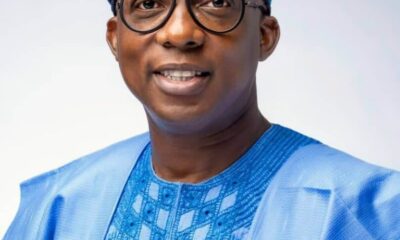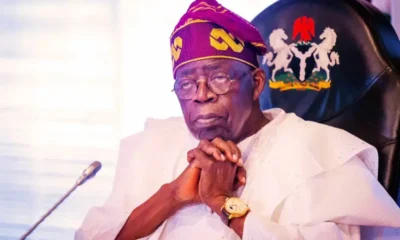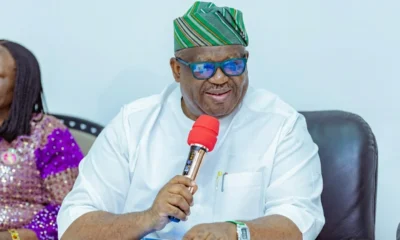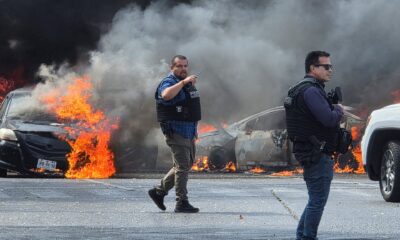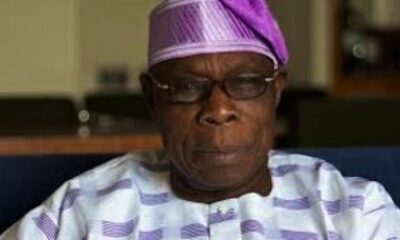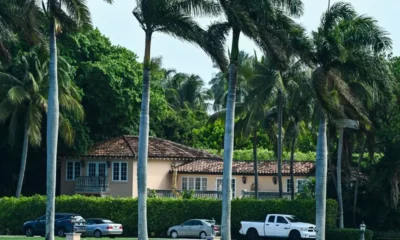Opinion
Genocide, selective perception and framing
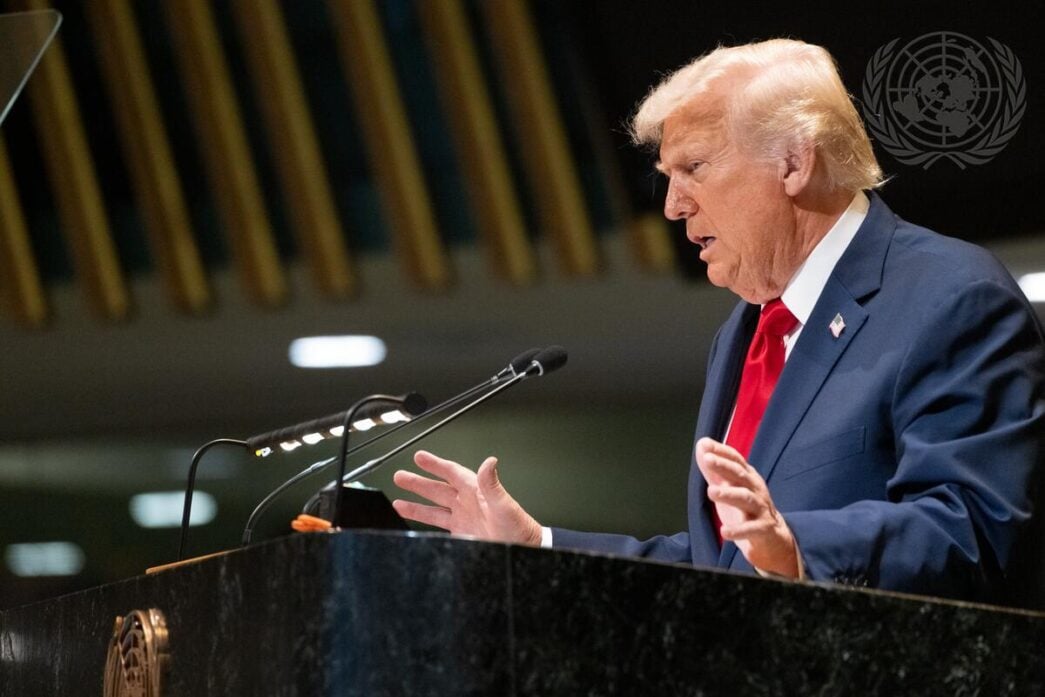
Your answers to these questions will say a lot about how you perceive insecurity in Nigeria. The questions came to mind recently after an American comedian, Bill Maher, made global headlines with his comments on “Christian genocide” in Nigeria. “I’m not a Christian,” the atheist said, “but they are systematically killing the Christians in Nigeria. They’ve killed over 100,000 since 2009. They’ve burned 18,000 churches. These are the Islamists, Boko Haram. This is so much more of a genocide attempt than what is going on in Gaza.” US President Donald Trump has now redesignated Nigeria as a “country of particular concern” over the genocide claims. He did it previously in 2020.
The UN Convention on Genocide of 1948 defines genocide as any of five acts committed with intent to destroy, in whole or in part, a national, ethnical, racial or religious group. They are (a) killing members of the group (b) causing serious bodily or mental harm to members of the group (c) deliberately inflicting on the group conditions of life calculated to bring about its physical destruction in whole or in part (d) imposing measures intended to prevent births within the group (e) forcibly transferring children of the group to another. The UN General Assembly had, by its resolution 96 (I) of December 1946, declared genocide as a crime under international law “that shall be punished”.
In the Christian community, there is still some caution on the use of the G word concerning Nigeria. Cardinal Pietro Parolin, the Vatican secretary of state, said the killings affect not only Nigerian Christians. “We should also recognise that many Muslims in Nigeria are themselves victims of this same intolerance,” he said. “These are extremist groups that make no distinctions in pursuing their goals. They use violence against anyone they see as an opponent.” Rev Wale Oke, national president of the Pentecostal Fellowship of Nigeria (PFN), told PUNCH: “Our position is that genocide exists, but it is not just about Christians. Our concern is that whether Muslim or Christian, stop the killing…”
These measured comments did not go down well with the proponents of the genocide claim, especially on social media. Some insist that only Christians are victims of terrorism, banditry and ethno-religious violence in Nigeria. Fair enough, the proponents got the full support of Bishop David Abioye, founder of the Living Word Conquerors Global Assembly and a former pastor at Bishop David Oyedepo’s Winners Chapel. Abioye declared: “There is a lot of distortion going on, people claiming there is no genocide of Christians in the nation. Information with facts can never be thwarted. You see people buried in hundreds, and you say there is no genocide. What a wicked set of people!”
I am aware that this is a delicate topic — emotive issues are like that. For one, there is no doubt that Christians and churches in parts of the north are targeted. Christians in certain states also complain of marginalisation. Any attempt to deny these facts would be absolutely dishonest. But it would even be more disingenuous and criminal to suggest that Muslims and mosques are not targeted too. In fact, I am cocksure that the number of casualties of terrorism and banditry among Muslims is far more than that of Christians. If, on the basis of verifiable evidence, Muslims and Christians have been casualties of violence and insecurity, why then is the narrative being carved as Christian genocide?
In trying to understand the religious genocide narrative, I posed some questions to myself. Whenever the largely Christian Berom and the mainly Muslim Fulani communities in Plateau state clash, is it religious or ethnic? In Benue state, are Fulani herders killing Tiv villagers and Tiv villagers killing Fulani herders because of religion or dispute over land and grazing? When Christian villages and Muslim communities in Kaduna state fight, is it about religion? Remarkably, when Tiv and Jukun communities, both predominantly Christian, fight in Taraba state, how do we classify that since they are of the same faith? When are killings to be classified as ethnic, religious, economic, or political?
At this point, it may also be useful to countenance the fact that certain areas of the north are prone to violent conflicts which are, by default, categorised as religious even when religion has nothing to do with the context. There are many of such violence-prone communities in Kaduna, Benue and Plateau states. To complicate matters, Muslims and Christians tend to take sides on the basis of religion whenever things flare up. This is indeed very common. But there are also many states in the north — such as Kwara, Kogi, Gombe, Niger, Nasarawa and Adamawa — where there is a good mix of Muslims and Christians but hardly do we witness conflicts, much less violence. What explains that?
The peculiar situation has got me thinking. The first thought that came to my mind is the “framing theory” in mass communication. It proposes that how information is presented to the audience influences how they process it. That is, presentation structures meaning. This is part of the agenda setting theory of the media. For instance, when people are killed in clashes between Hausa farmers and Fulani herders in Jigawa and Zamfara states, it is not presented as genocide or Islamisation. Why? The conflict cannot be so framed because Hausa and Fulani are socially constructed as similar or assimilated ethnic groups. Thus, the conflict will be presented simply as a farmers/herders clash.
Similarly, if Tiv and Jukun villagers clash over land, religion will not be emphasised because both groups are mostly adherents of the same religion. Yet, the reason for the conflict might be strikingly similar to what obtains in Jigawa and Zamfara: a clash over land and livelihood. Conversely, if Tiv were to be Muslims, the framing would be different because of the historical animosity between Muslims and Christians in the region. This framing is not limited to Nigeria. When Iraq invaded Kuwait in 1990, it was not framed along religious lines since both are Muslim-majority countries. But when the US started bombing Iraq to “liberate” Kuwait, Muslims interpreted it as a war on Islam.
I strongly suspect most conflicts in the north are communal and not religious — but political framing plays the key role. I have seen pictures of mass burials in Zamfara, Sokoto, Niger and Katsina states, as well as Borno, Yobe and Adamawa states. I reasonably presumed they were mostly Muslims. Why? Because the attacked communities are mainly Muslim. They are victims of the brigandage against hapless citizens, most of them farmers and rural dwellers. I have also seen pictures of mass burials in Benue, Plateau and Kaduna states. I reasonably presumed them to be Christians and Muslims. Why? Because since pre-colonial times, they have been locked in wars of aggression, attrition and reprisal.
I now move to my second thought on the genocide narrative. In psychology, there is a concept called “selective perception”. It is how people unconsciously select, filter, and interpret information based on pre-existing beliefs and attitudes. They ignore or discount contrary information. This cognitive bias is often at play when we analyse conflicts. If Boko Haram kills 90 Muslims and 10 Christians in an attack, those with this bias will count only the Christian casualties because their belief is that only Christians are victims of terror. If 10 mosques and five churches are burnt in the same attack, they will select only the bit on churches. It may not be deliberate — it may just be unconscious bias.
In February 2014, Boko Haram attacked the Federal Government College, Buni Yadi, Yobe state, and killed 59 Muslim boys in their sleep. There was no talk of “Muslim genocide”. Two months later, when hundreds of schoolgirls were abducted in Chibok, Borno state, someone cynically asked me if northerners really went to school in those numbers, much less study science. But when the Borno government named the victims and it emerged that most were Christians, the conspiracy theorists changed tune. They finally accepted there was an abduction and agreed that northerners could indeed be science students — but then said they were kidnapped only because they were Christians.
It must be noted that while many proponents of the genocide narrative may be genuinely worried about targeted killings, some are deliberately pursuing a mischievous agenda. They are consciously framing the issues through selective perception. Their ultimate purpose is to score a political point. Some know that the framing is wrong but would rather look away or comment on something else because they are eyeing the next elections. There are also “activists” targeting dollars from Christian bodies to campaign against “Christian genocide” in Nigeria. And there are potential asylum seekers who hope to benefit by claiming to be from a country of concern. They all know what they are doing.
Still, genocide or no genocide, Nigerians desire and deserve to live in a society where they feel safe, secure and happy. We would not be discussing genocide if the state had always demonstrated the capacity to protect the lives of its citizens — men, women, children, Muslims, Christians, animists and atheists. But this major failing created the room for this narrative. The onus is on the state to step up its game and make Nigerians feel at home anywhere they are in the country. There must also be a deliberate, sustained and effective programme of peace-building in the divided communities so that those utilising the power of framing and selective perception will not have the last laugh.
AND FOUR OTHER THINGS…
PDP PALAVER
If there was any doubt that the prolonged crisis in the Peoples Democratic Party (PDP) is not natural, the last-minute court order stopping its convention should finally settle the matter. This was a convention meant to reset the party so that it can finally put its house in order. The court injunction baffled me because the Supreme Court recently ruled, in another matter involving the same PDP, that the courts should not be interfering in the internal matters of political parties. And now this. The judiciary has, regrettably, sloped to the level of “anything goes”. Courts are increasingly delivering judgments and making orders that do not make sense in matters of law or justice. Inconsistency.
DEMONSTRATION OF CRAZE
Paul Biya became president of Cameroon in 1982. Now 92, he has just won his eighth term in office. He will have spent 50 years in office when his new seven-year term expires in 2032, when he will be 97. Alassane Ouattara, 83, has been re-elected as president of Cote d’Ivoire after he amended the constitution and disqualified his opponents from the contest. In Tanzania, President Samia Suluhu Hassan, once celebrated as an icon for being the second female president of an African country, is doing everything to exclude opponents from the ballot. The late Prof Claude Ake, eminent political scientist, once summed it up this way: “You cannot build a democracy without democrats.” Apt.
PARDON THE MESS
President Tinubu has significantly whittled down the pardon list, removing persons convicted for kidnapping, drug trafficking, human trafficking, fraud, and unlawful possession of firearms from benefitting. The pardon is a show of federal government’s prerogative of mercy. I must say I was very happy with the way Nigerians tore the list apart, pointing out why some of those pardoned did not deserve it and why it could send the wrong message. The whole thing was messy. I am glad Tinubu retraced his steps. While the president can claim that he will have mercy on whom he will have mercy, we need to set measurable, predictable standards for the pardon process. Mortifying.
NO COMMENT
Another week, another bill to set up another agency. Hon Fuad Laguda, a member of the house of reps, has proposed a bill seeking to establish the Fintech Regulatory Commission. Laguda said the commission will oversee and regulate “the rapidly growing fintech industry” in Nigeria as if the CBN complained to him that the job is too much. We publicly mouth cutting down on big government and do exactly the opposite. I have lost count trying to keep tabs on the proposed new agencies — to be funded from public purse, of course. I am still trying to understand the science behind policymaking in Nigeria. What next? A bill to set up Roadside POS Operators Regulatory Commission? Hahahaha.
-

 Politics17 hours ago
Politics17 hours ago2027: Real-time results transmission achievable, say telcos
-

 News22 hours ago
News22 hours agoMonthly environmental sanitation yet to resume – Lagos
-

 Business21 hours ago
Business21 hours agoNUPENG asks Tinubu to clarify new executive order on oil and gas industry
-

 Business22 hours ago
Business22 hours agoDangote Refinery targets depot owners, major marketers in new marketing model
-

 News21 hours ago
News21 hours agoActivist kicks as Plateau sponsors pilgrims with N7.48b
-

 World News22 hours ago
World News22 hours agoViolence erupts across Mexico as army kills drug cartel leader
-

 News22 hours ago
News22 hours ago89th birthday: Obasanjo targets 10,000 Lagos residents for free healthcare
-

 World News21 hours ago
World News21 hours agoUS Secret Service kills man trying to break into Trump estate





